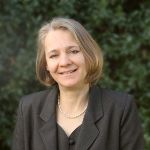|
Innovation democracy
travels to somaliland republic

We wish the Republic
of Somaliland and its wonderful people the best of success in
rebuildi ng their ancient, strategically situated, country in the
Horn of Africa. The country needs an d deserves to be legally
recognized by the world’s community of nations and should be
priv y to the world’s commendation and support for having
accomplished three democratic elec tions. By: Liisa Välikangas
A well known professor from Finland who visited to Somaliland a week
ago has created an Article about her experience in Somaliland
Republic and urges the world to recognize Som alialnd.
December 17, 2010 – Landing at Berbera airport off the coast of the
Gulf of Aden, we learn that its 4,100 meter Soviet built airstrip
was used by the Kennedy Space Center for twenty years as an
emergency landing site for the Space Shuttle.
Disembarking from our African Express McDonnell Douglas aircraft we
are treated to wond erful Somali hospitality in the first
class reception area as we wait for our entry papers. We are
introduced to the armed guard, who by Somaliland law has to
accompany us in our drive from Berbera to Hargeisa on a very
potholed but paved road. The speed limit is 80, we are told, to
avoid the car from spinning out of control when hitting a pothole.
The two of us, Liisa Välikangas and Jaak Treiman, are visiting
Somaliland on an invitation to celebrate the opening of The
Institute for Strategic Initiatives, which seeks to support the
Somaliland government in its reform and reconstruction work. The
trip had its beginning about two years ago when Mr. Abdi Jama, a
Somali-Finn with an impressive entrepreneurial and software
background, walked into Liisa’s office at Helsinki’s Aalto
University and shared his vision for an institute that would be
instrumental in rebuilding Somaliland’s society after the brutal
civil war, still going on in Somalia, south of Somaliland. Abdi said
then and still says that his project “is Somaliland.” He has
returned to Somaliland’s capitol, Hargeisa, with his family and now
works with the Civil Reform Commission of the newly elected
democratic government of Somaliland.
Somalis are an old culture with Egyptian and Arab roots. It is told
that during the early yea rs following the birth of Islam they
left embattled areas for the Gulf of Aden to live in peace. More
recently, in 1991, Somaliland severed its ties with Somalia
re-established itself as the independent Republic of Somaliland
having the same borders it had prior to 1960, while it was governed
as a British Protectorate. Somaliland is a rare enclave of democracy
in East Africa and has succeeded in attracting many members of the
Somali Diaspora from Finland, UK, and Canada back to the country.
While “Somali” is too often used as an ethnic slur in many news
reports (as in “Somali pirates” or “Somali terrorists”), we learn
Somalis have a wonderful culture of oral poetry and tale telling. In
one story, a lion steals a sheep. Only the person “who does not know
the lion” can get his sheep back. It strikes us that the people of
Somaliland now need so much courage that in this story’s terms, they
have to go after the lion to get the sheep back even though they
know how powerful an animal the king of the jungle is.
We wish the Republic of Somaliland and its wonderful people the best
of success in rebuildi ng their ancient, strategically
situated, country in the Horn of Africa. The country needs and
deserves to be legally recognized by the world’s community of
nations and should be privy to the world’s commendation and support
for having accomplished three democratic elections. Unlike the Ivory
Coast, for example, where the incumbent is currently refusing to
give up power, in Somaliland this summer’s election, as its previous
two elections, brought change without conflict and a seamless
transition of power. More than that, there is a thri ving
opposition led by another Somali-Finn! (The speaker of the House of
Representatives is also a Finnish citizen
Beyond statehood recognition, Somaliland needs to be able to employ
its youth. In particu lar, people graduating from universities
need a job to pay their debts to their family that has supported
them. They also dream of a better future, of course. Here is where
Innova tion Democracy can perhaps help – work with graduating
students to equip them with empl oyable skills while also
pooling their talent to address the country’s challenges
entreprene urially. How would the students solve the challenge of
water shortage despite evidently abundant ground water resources? Or
what could be done about the lack of sanitation? Currently donkeys
carry water tanks around the city and goats serve as a waste
manage ment system, eating everything except plastic (which are
ubiquitous, the blue plastic bags hanging on bushes, trees, fences
and rocks being called the “flower of Hargeisa”). There are some
entrepreneurial people filling in potholes in the road to Berbera as
cars pass by. Why don’t we task the teams of university students
with these issues and help them find beginning solutions for the
persisting problems, in a modular and culturally appropriate way?
Contact:
Professor Liisa Välikangas, Aalto University
President, Innovation Democracy, Inc. (Innovaatiodemokratia ry)
liisa.valikangas@aalto.fi; +358 50 496 7134
|
